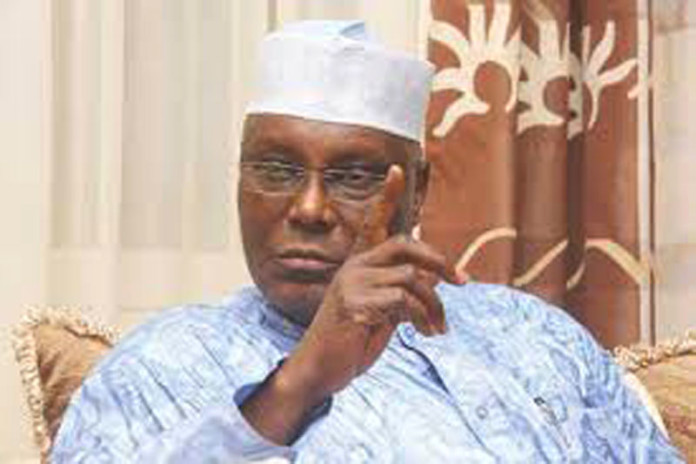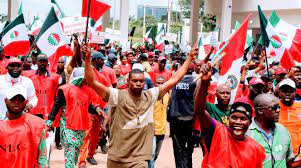When last week former Vice President, Atiku Abubakar, called for the urgent restructuring of Nigeria if the country is to make any progress, he did not say anything new.
He cannot be said to hold any patent to such a call because many Nigerians hold the view and have advocated it publicly.
But Atiku’s call has gained appreciable traction for two obvious reasons. The first is the person making the call and the second is the timing.
Many Nigerians believe, rightly or wrongly, that of all the regions in the country, the North is the least receptive to the idea of restructuring of the polity which will necessitate a weak centre and promote stronger federating units.
So, for such a call to come not only from one of the leading lights of the north but also a Hausa/Fulani elite is significant.
The second reason why the call has resonated so well is the timing. Except during the 30-month civil war, Nigeria has never been at such dire socio-economic and political crossroads as it is today.
At no time have all the fault lines that define our nation-state acted as centripetal forces pulling the various component units away from one another.
So, Atiku was spot on when he called “for a restructuring and renewal of our federation to make it less centralised, less suffocating and less dictatorial in the affairs of our country’s constituent units and localities ….
“Our current structure and the practices it has encouraged have been a major impediment to the economic and political development of our country ….
“The call for restructuring is even more relevant today in light of the governance and economic challenges facing us. And the rising tide of agitations, some militant and violent, require a reset in our relationships as a united nation.”
We salute Atiku’s boldness and courage.
Most of the schisms that now characterise our national life – rebellion in the Niger Delta, renewed agitation for an independent state of Biafra, cries of marginalisation by the minorities in the Middle Belt and Far North, quest for Sharia states, Fulani herdsmen and sedentary pastoralists – are all different shades of the resentment against the status quo.
It then goes without saying that the status quo has neither served Nigeria as a whole nor any part of the country well, including the North.
In which case, the often quoted refrain by self-serving political leaders that the idea of one united, indivisible Nigeria is not negotiable flies in the face of reason.
The only way that could be achieved is the use of brute force as the federal government is doing in the South East against unarmed youths agitating for Biafra.
While that may work in cowing some agitators, history bears eloquent witness to the fact that ultimately there is a limit to which a people repulsed by acts of injustice to seek self-determination can be held down by the force of arms.
In any case, if Scotland could seek to exit Great Britain after centuries of mutually beneficial union, what makes the idea of one Nigeria sacrosanct?
While the idea of one Nigeria is alluring – and we believe many Nigerians would prefer to live together – for it to endure, it must be a federation erected on the solid foundation of equity and mutual respect.
Skewed federalism is a recipe for crisis as we have in Nigeria today. For the country to work, there must be fiscal federalism with the federating units surviving on their own rather than being appendages of an all-powerful centre.
And for that to happen, the country must be restructured. The various groups that make up the country must come together to decide what they want.
Fortunately, the 2014 National Conference report serves as a roadmap. There is no need to convoke another conference unless to subject the report which has far-reaching recommendations to a referendum.
President Muhammadu Buhari’s outright rejection of the report is ill-advised.
For us to have our dream country of peace and prosperity, Buhari must show that he is still committed to the Nigerian project based on fairness, equity and good governance, and not by talking down on people who have genuine grievances against the Nigerian state as presently constituted and run.

- Advertisement -
- Advertisement -
Must Read
NLC, TUC mobilise workers, CSOs for protest, strike over minimum wage,...
NLC, TUC mobilise workers, CSOs for protest, strike over minimum wage, electricity tariff hike
By Jeffrey Agbo












